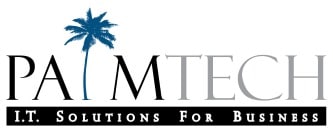
By Dr. Nido Qubein
I left my home some 7,000 miles away with little money in my pocket. I was eager – and just 17.
My father died when I was six, and I came to America for college with the words of my mother still ringing in my ears: “If you want to be a great person, you have to walk side by side, hand in hand, with great people.”
She was right. I have been blessed. And so many people have helped.
Before coming to High Point College, I lived off campus at Mt. Olive College, and the housemother slipped into my bank account enough money for me to buy my first car – a used car. She told me she’d rather invest her money in a promising young man than park it somewhere in a bank. What an angel.
In 1993, two years after High Point College became High Point University, the school elected me to its board of trustees. Eleven years later, my fellow board members asked a question that would change my future forever.
Nido, they asked, will you lead HPU?
In January 2005, HPU appointed me as its seventh president, and I saw my alma mater to be a God, family and country school that could emphasize the values and fundamentals that built America.
No apologies for that. As a patriot to the core, I remember what this country and campus did for me – and what higher education needs to do for others in the 21st century.
Students come to campus armed with iPhones loaded with apps, and they’ve gotten used to accessing anything in the world with a touch of their screen. Good for them – and us. But we must not confuse accessing information with obtaining knowledge. The two are not the same.
An education must be holistic, impacting the mind, heart and soul. And that includes understanding not just the how, but the why.
Couple that with an entrepreneurial spirit and an awareness of what built America in the first place, and I believe an education like this will set students on a trajectory of achievement and stewardship.
At High Point University, in the seminars I teach for freshmen and seniors, we cover all kinds of topics, from time management to fiscal literacy.
But the timeless principles I focus on pertain to all of us.
Who you spend time with is who you become. Be a job creator, not a job taker. Stand for something or you will fall for anything. Change your words and change your world.
They need to hear someone say, “You can make it. You are created in God’s image.”
They need to remember the words of Scottish theologian William Barclay: “Always give without remembering. Always receive without forgetting.”
They need to know we are the by-products of the beliefs we keep close.
They need to believe they can be… extraordinary.
It is a choice, after all. And the best is yet to be.

